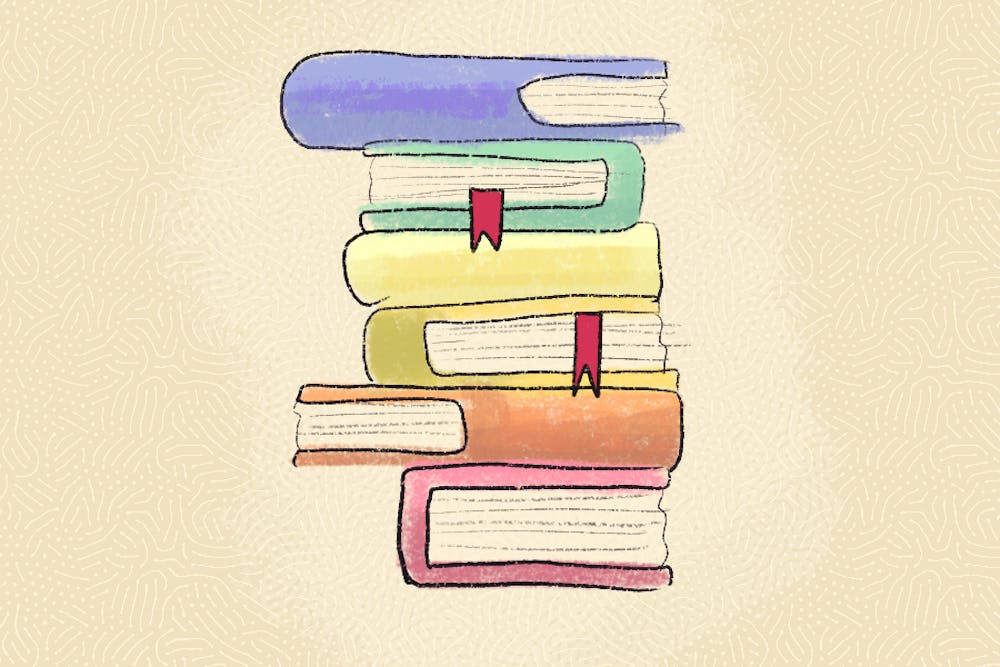My teachers taught me to read, but my mother taught me to read. Growing up, she urged me towards volumes of books that connected me to a world outside my quiet suburban life—Kafka, Borges, Tolstoy, Vonnegut. It was one of emotion, intelligence, and drama, a world of ideas that moved me just as they had moved my mother 30 years before.
To this day, books never let go of me, threading their way into conversations over the dinner table, in the classroom, with people I have just met. How was it that writers could touch my life, and so profoundly, years after theirs had ended? More than anything, I desired a power and immortality like theirs. Growing up as a sensitive and reflective kid, I wanted to define myself. And so I imagined that writing could be my way to be somebody worth remembering. It's that simple.
While reading at my high school’s poetry club or making the occasional offhand submission to a fancy writing competition, I began to cater to the expectations of the audience in my head. Fixated on other people’s opinions, whether those of my classmates, the imagined jury of a writing contest, or outright strangers, my writing became my outlet to impress, and its sincerity slowly faded. I stopped reading, and, gradually, I stopped writing.
"I'm Nobody! Who are you?"
I imagine how Emily Dickinson must have written this: seated alone, writing either to a friend or simply for herself, isolated inside her home in Massachusetts for most of her life. She regularly enclosed poems in letters, but barely ever published during her lifetime.
Due to her most famous poems such as “Hope is the thing with feathers,” Dickinson is—quite frankly—remembered for not wanting to be remembered. It was her younger sister who discovered the secret bundles of hundreds of poems that eventually led to publication. Did she even ever want her writing to be published? No one knows for sure. Probably not.
However, when Emily Dickinson, one of America's most prolific poets, claims to be a nobody, it's hardly touching. Of course she is somebody! She is famous. She is celebrated, after all.
Here I am, a girl living nearly two centuries after this woman’s death, agonizing over a single sentence she wrote. However, I wondered: what if Dickinson’s poems had never been published at all? If so, wouldn’t this frail woman, writing in seclusion, consumed by poetry, forgotten by all but her loved ones, wouldn’t she have been the quintessential nobody?
Certainly, I wanted to be influential, and consumed by the melodrama of my own adolescence, I wanted a greatness to call my own. I still do. But there was my mother, who had chosen a different path. Shamefully, trapped in the suspense of college admissions and the weight of what felt like my whole entire future, whether I admitted it or not, I doubted whether I would be satisfied if I were her.
One Saturday morning, as we were driving home from the grocery store (an exhilarating suburban pastime), seemingly out of the blue, I asked my mom a question.
“Mamo, why did you never become a writer?” At the end of high school, at my age, she had been a rising star in Bulgaria and was invited to receive national awards for her poetry.
Struck with sudden introspection, she raised her eyebrows candidly and reflected for a moment. Eventually, she told me, “I don’t need anyone to read anything of mine.” She didn’t say anything, but I knew she was envisioning everything she and my father had built since immigrating to this country. “They only need to meet you,” she told me. “My poetry lives in you.”
I was suddenly and painfully aware of my own vanity. All those books—but had I learned anything?
My mother, who never published, who lived her life for her family at home, for the patients she has helped in the clinic, urging me to seek beyond myself, inspires so much poetry in me. I can’t remember how much time passed since that car ride, but eventually, before graduating high school, I found myself thinking back to Emily Dickinson. Of being nobody; of being somebody. She wrote whether anybody found out. She loved whether anybody noticed. With time, I discovered that the power of the self—proclaimed “nobody” is the courage to connect with people one–on–one, not to shout into a crowd. Wasn’t that the reason for my love of books in the first place?
Would I still write if I were anonymous? I write because my heart swells with the ability to share myself with people. If anything I write or say or do stays with a person and makes them wonder or feel or laugh for a moment, then I am somebody—unconditionally so. That is my poetry.
So that song, “You're nobody until somebody loves you”? I don’t know about that. Maybe you’re nobody until you’re no longer afraid to be one.







